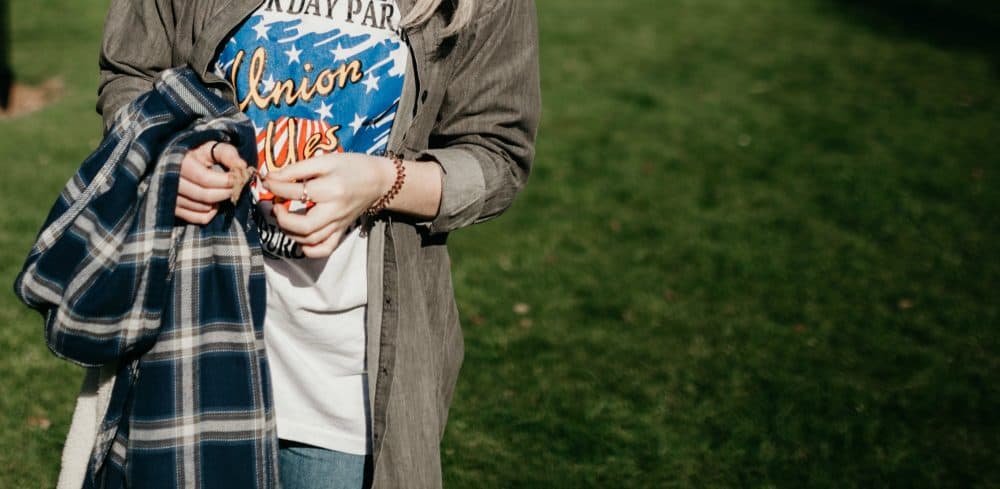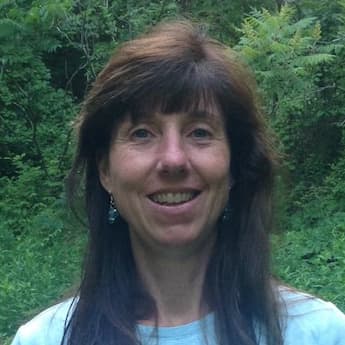Advertisement
Commentary
With Anorexia, It's One Day — And One Apple — At A Time

The cashier was a teenage boy at that age when boys can have cuts from shaving while still suffering with acne. Occasionally mature, frequently still young and self-absorbed. I suspected he looked at my daughter — who was about his age — as one of those rebel teenage girls in her camouflage jacket and wool cap edged with political pins.
“Can I help you?” He innocently assumed she was deciding between a soup, sandwich, or salad.
It had been six years since she had successfully eaten in a restaurant. I knew every second she stood there was a struggle. She squinted at the menu board: Baked Potato Soup 330 Calories, Grilled Cheese 640 Calories, Greek Quinoa Salad 530 Calories.
“No, I can’t!” The panic that had been simmering within her exploded into a full boil. “I can’t eat here!”
The young man looked to me as she fled from the restaurant.
“Sorry,” I said. “It’s a long story.”
It was my standard response to those beyond family and very close friends.
I found Rosie outside huddled against the wall of a nearby store, knees to her chest, her face buried as if she longed to disappear. I willed myself to ignore the shoppers glancing at us and speculating about what was wrong. Why was a teenager sitting on the floor with her mother? Why wasn’t she trolling the mall like other girls her age? I put my hand on her foot, as close as she could bear to have me, and waited. We had gone through this routine many times, at many places.
My maternal reaction was to silently rail against the Food and Drug Administration that had mandated calorie counts in restaurants — as if no one knew that eating an apple was different from eating a chocolate croissant. Each time I heard an adult brag about losing weight, skipping meals, burning off calories, I wanted to rant about the impact of their words on my daughter and young people like her. But I had never done that.
Over the years I had learned eating disorders, like most other mental illnesses, are battles fought in private. No one organizes a fundraiser for eating disorders, no community rallies around the family, no one even asks questions. Families come up with their own white lies to explain away long absences from school and obvious changes in behavior and appearance. Rosie was a ghost, slipping in and out of schools and activities, depending on her mental health.
Years earlier, when I had knelt beside her in an ambulance, on the way to her first residential treatment center, I had no illusions that the next 30 days were going to turn her back into the funny, fascinating child she had been. I left my 12-year-old, clinging to a picture of her cat, with teenagers and adults who were already savvy in the world of eating disorders. While she was away, I was haunted by the images of these older patients, their nasogastric tubes strung to the IV poles they dragged along the hallways, like ominous shadows following those who refused to eat. I was only hoping she would become healthy enough to return home. And medically, she was. She gained the necessary weight, but she lost what was left of her childhood. A necessary trade I still regretted.
Rosie stumbled through the next few years missing all the teenage milestones, surviving on protein bars in the darkness of her bedroom. Without friends, she emptied her pain into searing poetry. As her sister and father continued in the world, she and I traveled from therapist to nutritionist to support groups avoiding people who wouldn’t understand. I tried not to think about the future.
Now, as I sat beside my trembling daughter, I felt someone looking at us — a woman whose bubbly grandchildren used to be friends with Rosie.
“What’s wrong?” I didn’t know if her voice indicated concern or curiosity, but my job was to shield my daughter from anyone who might judge her.
“She’s fine, just not feeling well. You know, probably something going around.”
She accepted my story and walked away carrying bags I suspected held items for her thriving grandchildren.
I squeezed Rosie’s foot. “We’ve got to go.”
“I can’t order anything.”
I could barely see her beautiful blue eyes behind her glasses and beneath her cap, but I knew they were there.
“How about an apple?”
After so many years of this, we both knew there were 95 calories in an apple whether it was posted or not.
“Not a big one.”
We went back, my arm around her now, holding her together. The teenage cashier was still there, I could see his name was Tyler and I imagined him jostling his friends in the school hallways, running across a soccer field, eating dinner with his family.
“Can I help you?” He gave us a slight smile. “Again?”
Rosie caught it. His humor pierced her defenses hitting that tiny target that still connected her to others. She didn’t smile but she lifted her head enough to make eye contact with him.
“Apple, please.”
“Sure.” He handed her the apple, with all its 95 calories.
I thanked God for the small kindness of this unsuspecting young man.
Editor's note: The name of the author's daughter has been changed to protect her privacy.
